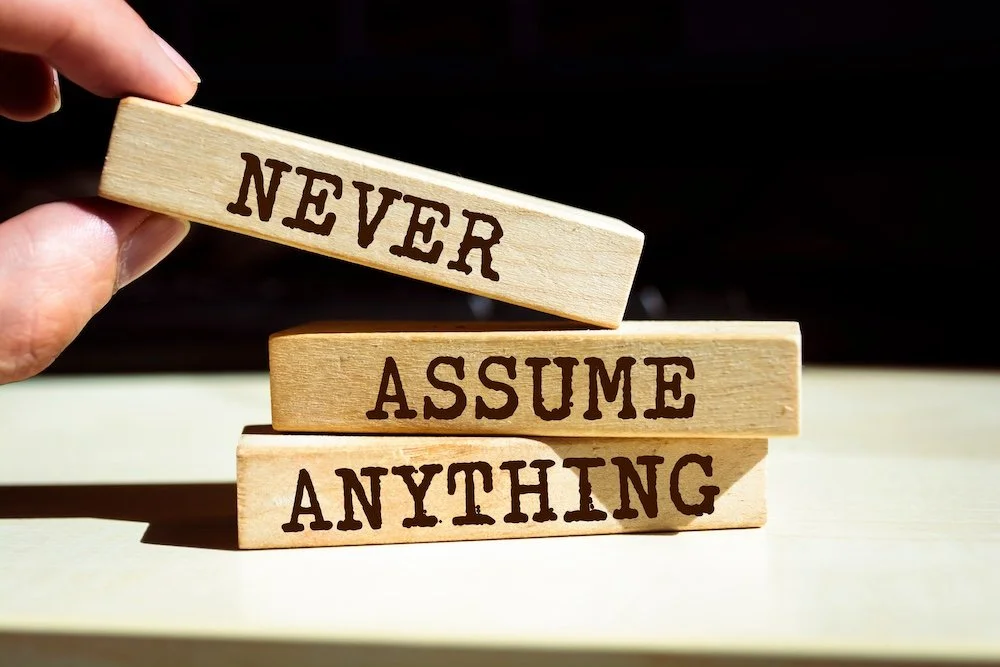Day 33: Assumptions
By: Sara Barnes
Assumptions get in the way of conflict resolution.
"I know exactly what he is thinking."
"Look at him, you can see it, just look at him"
“Can't you hear that in her voice, I know she is being dishonest. I can tell just by listening to her."
"They are out to get us -- lining us up like pins and, wham, here comes the bowling ball."
These are all unhelpful assumptions. I call it snapshot thinking. A person takes a mental snapshot and fills in all kinds of information that may or may not be true based on their biases, imagination, fear and limited experience.
Here's how the assumption is created: An individual takes in data. They pick through the data selectively and ascribe meaning to it. They believe the meaning they have settled on is true. Then, they pay attention only to data that confirms their assumption.
In psychology, this process is related to the Ladder of Inference, depicted below. Some people only climb the first two rungs, land on assumptions and don’t work beyond that level to refine and expand. And the reflexive loop confirms our assumptions and leads to us filtering our non-confirming data.
Spotting assumptions and working to broaden our thinking:
Mediator: "You've said that Robin only wants to hurt you."
Client: "Yeah, I can see it in their eyes. You see it too, I know you do."
"Well I'm wondering what it means to you that Robin is willing to be here today in mediation."
"They're just trying to make me miserable and enjoying how hard this is."
"Help me understand where you are coming from. Is there something Robin has done today that shows this?"
"No, you're not going to see it, Robin is on their best behavior with you."
"Is there anything you could possibly see or hear from Robin that would help undo your assumption that Robin is out to hurt you?"
"No, there is nothing that would show me that, nothing Robin can do would change my thinking."
We've all experienced an assumption loop where every new piece of information is whittled to fit into the existing conclusion. What can you do?
Consider what part fear and/or lack of power might play in your reflexive loop. Is this assumption more about you and not the other person?
Catch yourself when you're writing fiction. If you find yourself creating some epic story, start writing it as a fictional piece instead of calling it reality.
Notice when you are operating with filtered or selective attention. Can you make your thinking more holistic by adding in data that you've pushed aside?
Watch this Video where Felix from the Odd Couple teaches you (and the judge and Oscar) about what the word assume means.
Unresolved conflicts can be connected to unexamined assumptions. As they say, “Don’t believe everything that you think.”
Happy Omisoka, a traditional Japanese celebration on the last day of the year dedicated to ringing in the new year and eating noodles for good luck.

